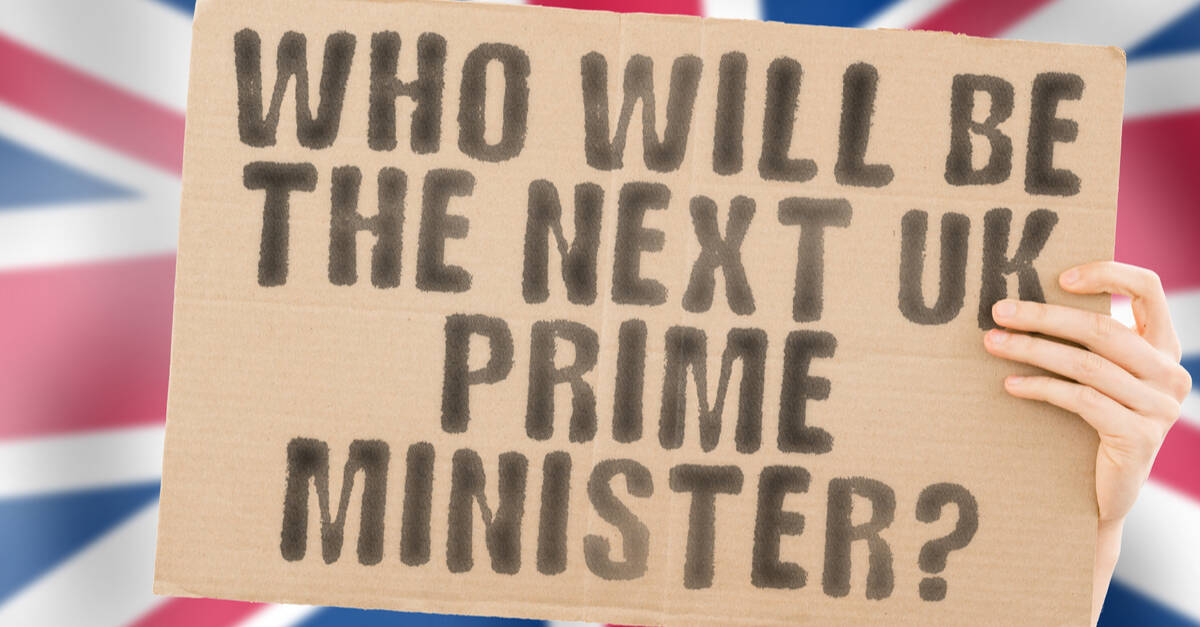Tories Spar Over UK's Delayed Online Safety Bill

Conservative lawmakers in the UK rounded off the week with a war of words over a proposed – and now delayed – internet content law.
Introduced in its current form last year by the Tory-run British government, the Online Safety Bill is supposed to tackle the spread of illegal material and shield people from harm in cyberspace.
The draft law has been ambling its way through Parliament, and was due to be debated again in the House of Commons on Monday, having reached its final stages, but has now been put on the back burner until autumn by all accounts.
Essentially, the government ran out of time to pass the law before the summer recess, which starts on July 21 and ends on September 5.
Some say the delay is due to the government tabling a discussion on a vote of confidence in itself on Monday in response to the opposition Labour party attempting to put forward a vote of no confidence.
What with other pressing matters to fit in before the summer break – such as wrangling over the future of Northern Ireland post-Brexit – the Online Safety Bill reading was shunted out of the way of those debates and into the latter part of the year. That was the official line from the Prime Minister's spokesperson.
And some say it's because the Tories are preoccupied with their leadership contest, the winner of which will be the next British prime minister as they will replace the outgoing Churchill cosplayer Boris Johnson. Given that the next PM may not support the law, it might not be a bad idea to hold off passing this flagship yet controversial legislation until a successor is selected.
On Thursday, Tory leadership hopeful Kemi Badenoch tweeted the Online Safety Bill "is in no fit state to become law."
"If I'm elected prime minister I will ensure the bill doesn’t over reach. We should not be legislating for hurt feelings," she added.
We should not be legislating for hurt feelings
By that, we think, she's referring to the consequences of the draft law as it stands – that social media companies may have to restrict content that's lawful but awful. The law seeks, in a labyrinthine way, to minimize content and posts from the internet that could cause harm – physical or psychological – to someone.
Culture secretary Nadine Dorries, who sponsored the internet bill and is backing Liz Truss for leader, hit back at Badenoch, saying: "Encouraging others to take their own life is what comes under that definition. It's a huge problem, especially with young people. You really define that as 'hurt feelings?'"
Damian Collins, a minister in Dorries's department and a champion of the bill, also defended it, saying Badenoch was "completely wrong," and added: "Tell me where in this bill there is any provision that requires the removal of legal speech. Instead for the first time we can set safety standards online based on our laws."
Labour's shadow culture secretary Lucy Powell also came out swinging for the bill, accusing Badenoch of having "no idea how the bill will work nor why it's needed."
Tory backbencher David Davis, meanwhile, had this to say: "We all want the internet to be safe. Right now, there are too many dangers online, from videos propagating terror to posts promoting self-harm and suicide.
"But the bill's well-intentioned attempts to address these very real risks threatens being the biggest accidental curtailment of free speech in modern history."
One of Davis's colleagues, Nick Fletcher, chimed in along the same lines, demanding free speech protections, and argued that "whatever we might think about Donald Trump, it cannot be right that he was banned from Twitter."
The Online Safety Bill is big and broad, and still due to be debated and amended. It is more of a framework, from which rules and codes will be developed with the communications regulator Ofcom, so this will be a long-running issue. If passed, among other things, messaging apps and other communications services – particularly those with strong end-to-end encryption – will be under pressure to somehow catch and report material depicting child sexual abuse and exploitation.
The bill also repeals and replaces today's laws against malicious communications, which already make sending grossly offensive messages and threats a criminal offense. (And it is already against the law to encourage someone to kill themselves.)
Porn websites, and perhaps even social networks, may have to verify visitors are adults. Fraudulent advertising will need to be tackled. It's basically risk assessments all the way down – along with measures to curb what's deemed to be harmful and abusive on the internet. ®
From Chip War To Cloud War: The Next Frontier In Global Tech Competition
The global chip war, characterized by intense competition among nations and corporations for supremacy in semiconductor ... Read more
The High Stakes Of Tech Regulation: Security Risks And Market Dynamics
The influence of tech giants in the global economy continues to grow, raising crucial questions about how to balance sec... Read more
The Tyranny Of Instagram Interiors: Why It's Time To Break Free From Algorithm-Driven Aesthetics
Instagram has become a dominant force in shaping interior design trends, offering a seemingly endless stream of inspirat... Read more
The Data Crunch In AI: Strategies For Sustainability
Exploring solutions to the imminent exhaustion of internet data for AI training.As the artificial intelligence (AI) indu... Read more
Google Abandons Four-Year Effort To Remove Cookies From Chrome Browser
After four years of dedicated effort, Google has decided to abandon its plan to remove third-party cookies from its Chro... Read more
LinkedIn Embraces AI And Gamification To Drive User Engagement And Revenue
In an effort to tackle slowing revenue growth and enhance user engagement, LinkedIn is turning to artificial intelligenc... Read more

